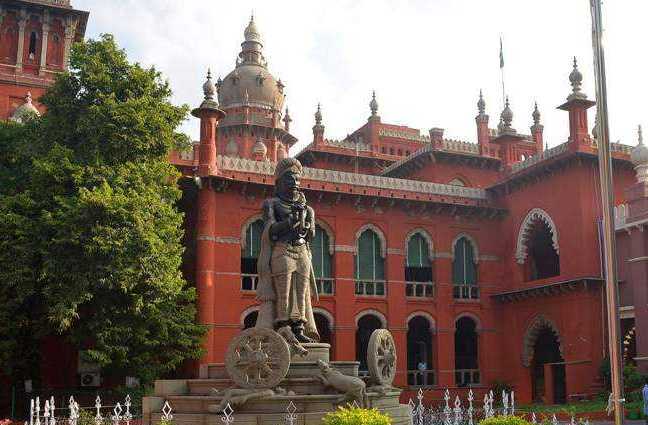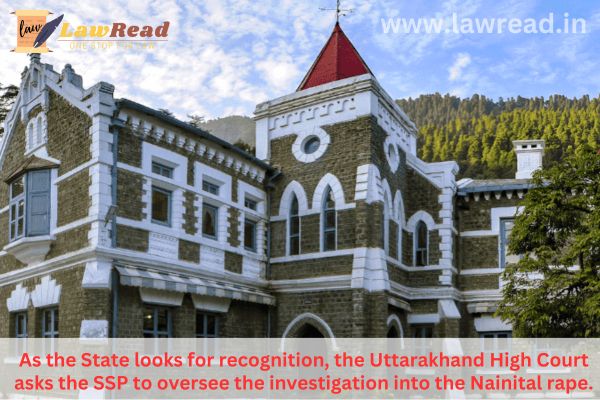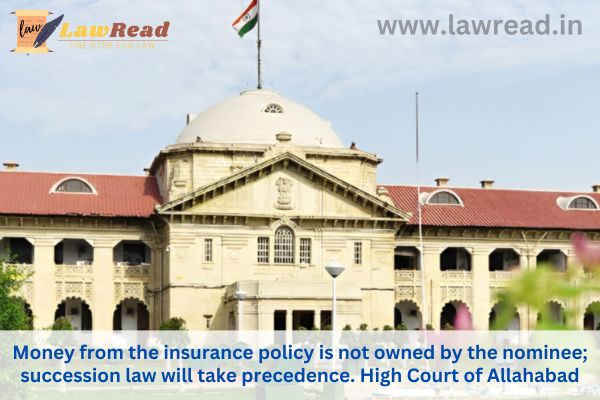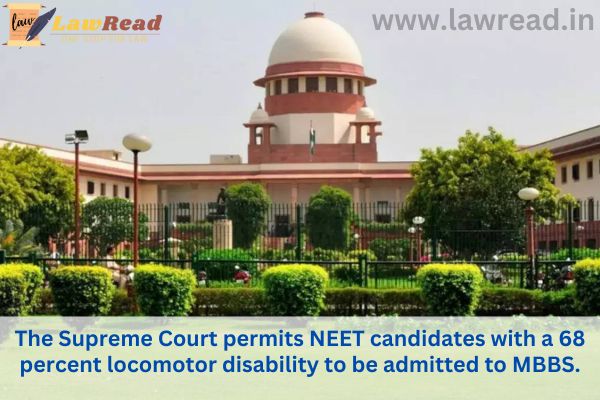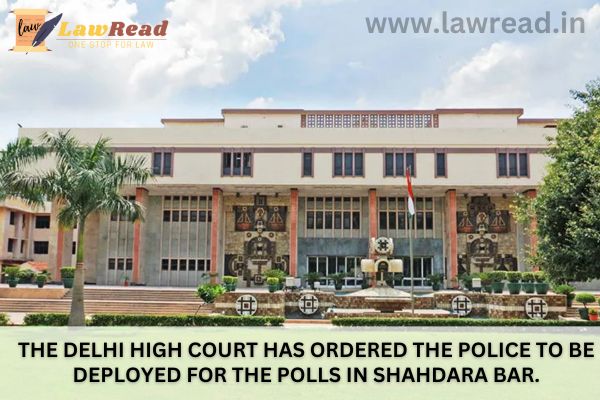News
The Supreme Court permits NEET candidates with a 68 percent locomotor disability to be admitted to MBBS.

The bench explained that since the candidate had already passed the NEET-UG 2025 exam, they would not need to take it again.
According on his National Eligibility cum Entrance Test (NEET) rank for 2024–2025, the Supreme Court has ruled that a candidate with a 68 percent locomotor disability could be admitted to the MBBS program for the next academic year.
Since Kabir Paharia lost a year due to legal difficulties after being deemed unfit to pursue MBBS despite having an all India rank of 147946 in NEET UG 2024, a bench of Justices Vikram Nath and Sandeep Mehta ordered that he be exempt from the NEET UG 2025 exam and be given a medical admission seat for the 2025–26 session.
Paharia's locomotor handicap prevented him from being admitted to MBBS. He has five half-grown fingers. He was ranked 7252 in the Scheduled Caste category and 176 in the PwBD (people with benchmark disability) category.
Both the single and division benches of the Delhi High Court denied his case after he filed it, citing three medical examination reports that concluded he was unable to practice medicine.
The Supreme Court did, however, rely on a fourth medical examination report that was carried out following an order from the highest court.
According to the report, Paharia was able to effectively show a number of expert methods in the simulation laboratory, including suturing, intubation, chest compressions, intravenous cannulation, and laryngoscope construction, the Court said.
"The only minor challenge, which the appellant faced during the entire procedure, was putting on the sterilized standard gloves,"
the Court stated.
The Court ruled that even a little deviation could not be used as a reason to reject the nominee.
"Mindset must change and this trivial aberration, by no stretch of imagination, can be a ground to deny admission to the appellant in the MBBS UG course, when he is otherwise qualified and scored exceeding high rank in the NEET-UG 2024,"
the Court stated.
In order to guarantee that people with disabilities (PWD) and people with benchmark disabilities (PwBD) can meaningfully participate in all aspects of life, including professional education, the State must take affirmative action. This emphasizes that the constitutional promise of equality is not just formal but substantive.
"We emphasize that reasonable accommodation is not a matter of charity but a fundamental right flowing from Articles 14, 16, and 21 of our Constitution," the Supreme Court said.
The highest court emphasized that administrative authorities not only breach legislative restrictions but also uphold historical injustice and stigmatization when they erect arbitrary hurdles that exclude competent PwBD candidates.
"The fundamental rights and the dignity of PwD and PwBD candidates must be protected by ensuring that assessment of their capabilities is individualised, evidence-based, and free from stereotypical assumptions that have no scientific foundation," the Supreme Court stated.
In order to ensure that worthy applicants from the PwBD category are not turned away from the MBBS program, the Court also ordered the National Medical Commission to update its recommendations within two months.
Rahul Bajaj, an advocate, represented the petitioner.
Archana Pathak Dave, an additional solicitor general, represented the respondent.

